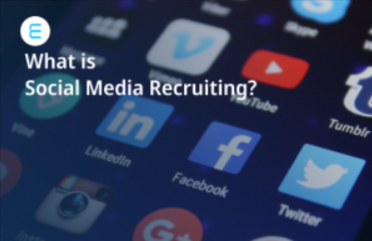Social recruiting, social hiring or social media recruitment is the enterprise use of social media platforms to identify, engage and vet individuals the organization may want to hire. It refers to the process of recruiting candidates through social media platforms, like LinkedIn, Facebook, and Twitter, and other websites, including online forums, job boards, and blogs.
For example, according to one study referenced by Capterra, nearly three-quarters of workers between the ages of 18-34 found their most recent job via social media. Moreover, nearly 90% of recruiters report that they have hired someone off of LinkedIn.
When done well, social recruiting enables organizations to reach passive candidates, gather more referrals, target desired candidates, showcase your organizational culture, and save money. Ultimately, social recruiting works because it inserts your organization into the orbit of where workers spend a considerable amount of their time–on social media.

What is Social Recruiting?
One of the biggest trends in recruiting over the past few years has been the use of social media to attract and convert talent. This practice even got its own buzzword – Social Recruiting. A vital part of recruitment marketing, social recruiting is using social media channels for recruiting. The term refers to different ways of using social media networks (such as Facebook, Twitter, LinkedIn, etc.) and websites (blogs, forums, job boards and websites like Glassdoor, Naukri, IIMJobs for example) to find, attract and hire talent.
While organizations have thus far generally used social recruiting as a way to augment more traditional recruiting methods, that may change as social recruiting continues to gain popularity. The ubiquity of social media has prompted HR departments to develop fully formed social media recruiting strategies and include them as a formal part of their organizations’ human capital management strategies.
Recruiting via social media can also be more cost-effective than conventional recruitment methods, such as on-campus events and in-person job fairs, which often require travel and many work hours to set up and staff. An employer’s talent acquisition strategy and the number and types of platforms it uses in its recruitment efforts affect how broad or targeted the mix of potential candidates is. Many social media sites enable HR professionals to easily tailor messages to each candidate group.
To pursue social media recruiting, organizations create a presence on social media sites as a way to bolster their brand, showcase their corporate culture and, ultimately, interest people in applying for jobs. Some launch paid media or organic campaigns, to target people identified as being most interested in the messaging. HR leaders see such tactics as a way to more effectively and efficiently attract both active and passive job candidates.
The emergence of social media recruiting in the first two decades of the 21st century tracks with the rise of social media itself. Employers quickly recognized that vast numbers of working-age individuals, particularly those in the millennial generation and later Generation Z as that cohort entered the workforce, who spend significant time on social media sites.
The growth of both social media and social media recruiting has similarly given rise to HR professionals who specialize in this area. The symbiotic relationship between social media and enterprise recruiting efforts also means that social media platforms now make recruitment features and tools available to organizations. Additionally, HR professionals can use third-party software to manage, enhance and support their social media recruitment activities.
Cruciality and Importance of Social Recruiting
Social Media remains one of the few untapped competitive advantages for employers. Not only social network houses the largest repository of talent, in fact studies show that 9 out of 10 companies have social presence. Social recruiting goes beyond posting current vacant jobs ads on your company’s social network accounts. It offers so much more! You can use social media networks to proactively search for potential candidates, build a relationship with them and encourage them to apply to your vacant job positions. For believers in social recruiting, the method offers a more-efficient and cost-effective alternative to conventional online recruiting. Social recruiting practices include things like:
- Identifying potential candidates on LinkedIn.
- Sending a potential applicant, a direct message on Facebook.
- Tweet links to available positions, and include relevant hashtags to build long-term cohesion.
- Post employee photos on your organization’s Instagram account with a message encouraging others to join your team, apply for open positions (with links), or add their resume to your recruiting pool.
- Creating videos to share on YouTube, Facebook, or Instagram pages that highlight and outline your organization’s culture.
Done correctly, social recruiting can help your business identify, reach out to, and hire high-quality job candidates. In fact, the following social recruiting stats tell us that this strategy is a must-have:
- 86% of job seekers say they use social media for their job search (CareerArc)
- 35% of respondents to a 2019 Jobvite survey said they learn about new job openings through social media.
- 41% of younger respondents said they were most likely to use social media to look for new jobs
- Roughly 40 million people look for jobs using LinkedIn every week
- 80% of employers say social recruiting helped them identify passive prospects (Betterteam)
- 70% of hiring managers said they hired candidates using social media (Betterteam)
- 84% of companies are currently using social media for recruiting (SHRM)
6 Crucial Benefits of Social Recruiting

Social media has become a part of the candidate journey and a common destination where passive job seekers discover new brands and job openings, where active job seekers evaluate potential employers before and after they apply to a job, and where employees advocate for their employer’s brands. And sure, it’s also a place to hunt down the latest cat meme—which only further proves our point that by actively showcasing your jobs and branded content on social media you can optimize your entire recruiting spend and effort to drive more engaged, qualified, and culture-fit candidates to your door, in less time. Here are just some of the benefits social recruiting can bring you: –
- Reach passive candidates –
You won’t find passive candidates on job boards or your company careers site, so social media might be the only way for your job ad to reach them. - Get more referrals –
Make it easy for your employees to refer candidates. With just one click on their social networks, they can share the information about your job opening with all their family members, friends and colleagues! - Target your perfect candidates –
Social media networks are a perfect place to reach candidates with different backgrounds, ages, nationalities, genders and industries. But what if you have a very specific, narrowly defined candidate persona? No worries – just use advanced search filters to find your ideal candidates. - Showcase your company culture –
Developing and displaying a unique company culture is a critical part of recruiting new talent and employer branding. If you display a great culture within your company, people will want to become a part of it! - Establish a more personal connection with potential candidates –
Effective social recruiting should operate like a conversation. Social media allows candidates to connect with your company in a low-key, low-pressure environment. - Save money –
Sourcing for candidates via social media platforms is very cost-effective compared to traditional methods of recruitment (like newspapers, TV, radio ads and the use of specialized publications and paid websites).
Platforms for Social Recruiting
There are many social media platforms in today’s market. But it is of utmost importance that you choose the right platform to attract job seekers and find the right candidates.
According to a report by research company GWI, “The biggest social media trends for 2022,” 58.4% of the world’s population uses social media, with daily use averaging 2 hours and 27 minutes, over an average of 8 social media networks. Social media has quickly become ubiquitous, and given the average time spent across platforms, it’s easy to see the value of tapping into a captive audience. Let’s look into the most effective platforms for Social Recruiting: –
- LinkedIn – Possibly the biggest platform of its kind with vast reach of candidates, that is organically expanding and continually updating
- Facebook – Simple ad-based system with massive market place for candidates. Best for recruiting local positions and entry-level jobs and up
- Xing – provides a range of analysis, assessment and profile optimization tools
- Twitter – A large, active candidate pool. Ideal for researching company culture and is most popular: Sales, IT, Medical/Dental
- Quora – Community-based question-and-answer network that gives access to industry experts and specialists. Best for recruiting Passive candidates in specific fields of industry
- GitHub – Loaded with technical candidates and very popular with IT, technology industries, developers, and engineers
- Stack Overflow – Has a vast, passive candidate resource pool. Tech specialist site for recruiting Developers and IT industry engineers and experts
- Meetup – Wide range of community networks that does automatic Geographical sorting
- Medium – Huge pool of talent and topics for passionate professionals
Social Vs Traditional Recruiting
Once an acceptable number of profiles have been sourced, the next step is to perform a screening based on the Social recruiting is quickly taking the place of more traditional recruiting methods. With the many positive outcomes of social media recruiting, it’s easy to see why, social recruiting can help you establish your company’s mission and foster a great reputation while also serving its primary objective of helping you find quality candidates for open positions within your company.
The technology that powers social media most notably, advanced search capabilities, filters and automated suggestions that generate connections between individuals are many of the key benefits of using social media versus older recruitment techniques.
- Social media enables recruiters not only to reach vastly more people, but at the same time pinpoint professionals who have the credentials they’re seeking. The vast reach of the internet means a strategic social media recruitment effort can reach millions and nearly instantaneously. At the same time, social media tools enable recruiters to identify candidates with desired credentials, such as particular degrees or skills.
- Social media enables recruiters to spread information about job openings and the organization to both passive and active candidates. Traditional recruiting methods, such as online job boards or advertisements, most often engage only active candidates who are looking for that information.
- Social media enables recruiters to use other people – namely, fellow employees, professional connections and associations – to amplify their messages through online networking. Contrast those capabilities with traditional recruitment methods, such as cold-calling potential candidates and employee referrals, that rely on the time-consuming process of making one-on-one connections.
- Social media enables these broad yet targeted capabilities at a lower cost than such conventional methods as job fairs and generic advertising campaigns. And social media often delivers these benefits more effectively than conventional recruitment methods.
Top 4 Social Recruiting Strategies
Social media allows potential recruits to get a feel for what the company is like before they apply. By encouraging potential recruits to get to know the company culture before accepting a position, you ensure the candidate is the right fit for the company.
Social media recruitment may be the popular form of digital recruitment– but nothing can serve you the desired outcome until that has been implemented in the best way. Thus, if you want to become one of the recruiters who are happy with the result of social media recruiting, then you have to think beyond. Below are the 4 best practices for recruiting via social media that help you to attract active candidates.
Determine your goals
The path to success always starts by creating a solid foundation. If you start dividing your attention between dozens of sites without any clear ambitions, you’ll be setting yourself up for unnecessary struggle. Instead, make a detailed plan that focuses on the best social media platforms for your ideal candidates, and funnel prospects through a single communication channel.
Tap into the right platforms
While LinkedIn or Twitter might seem like the obvious place to start your social media recruiting strategy, it’s important to research your ideal candidate profile and consider where they’re most likely to spend their time on social. Thus, recruiters must be agile in where they plant their flag to find the most talented and qualified candidates. Finding high-quality employees means tapping into the right platform for the role you’re trying to fill.
Ensure your online presence reflects your brand
A work environment that’s both desirable and reflective of your employer brand will continue to climb the ranks of your future candidates’ list of requirements. Company culture attracts the top 20% of candidates, meaning a strong reputation and positive online presence carries a lot of weight, particularly with passive job seekers. In fact, 75% of active job seekers are likely to apply to a job if the employer actively manages its employer brand. To develop a more active and positive social media presence, think about your brand manifesto and how you can highlight your people, values and other differentiators.
Consistently engage your social audience
When it comes to social recruiting, it’s important not to lose sight of what this approach is at its core – social. This means that your conversations should be a two-way street, and you should always be prepared to both ask and answer questions.
At the same time, make sure that you don’t focus exclusively on job postings. You should always strive to engage different groups of people, share helpful resources and infuse your messaging with your company’s unique tone and values. Talented individuals should engage with your brand even when job roles aren’t available, helping you create a pool of talent to dip into whenever roles open up.
Involve employee advocates
Social recruiting through employee advocacy automatically increases your recruitment reach. Just by sharing job listings on their social profiles, your workforce exponentially boosts your ability to connect with new and diverse talent. Employee social media content is shared 25 times more frequently than when the same content is shared by brand channels, which is quite wide. True employee advocates organically spread the word about your company culture and use their own social networks to help fuel your candidate pipeline.
Summing Up
From recruiting to retention, ensuring your employees are engaged at every step of their career helps create a productive, rewarding work culture. Social recruiting is a great match for the needs of today’s job seekers, but employers need to follow up with a streamlined recruiting process and meaningful onboarding and retention strategies.
A well-designed strategy that covers recruitment through retention is essential if companies want to build a great team and stay ahead of the competition. It’s hard to implement a new framework for promotion and growth if you’re constantly backfilling roles or fixing the productivity and morale challenges that stem from frequent turnover. It’s not the salary or bonuses that matter most in your culture, recruiting and retention efforts—it’s the ability to engage your employees in an atmosphere that offers respect, room for growth and empowerment.
FAQ
What is social media recruiting?
Social media recruiting is the process of using social media platforms, like LinkedIn, Twitter, Facebook, and Instagram, to share job postings, network with professionals, and research potential job candidates.
Why is social recruiting important?
Social media enables recruiters to spread information about job openings and the organization to both passive and active candidates. Traditional recruiting methods, such as online job boards or advertisements, most often engage only active candidates who are looking for that information.
How can social media be used effectively in recruitment?
Because of the ability to reach both passive and active job candidates, social media is also one of the best sources of the highest-quality job candidates. According to research, 59% of recruiters rated candidates sourced through social media as “highest quality.”
What are the benefits of social media recruiting?
By adding social media to your recruitment strategy, you can attract active and passive candidates, target your specific and ideal talent pool, boost your employer brand and company culture, and save on recruiting costs.
Is social media effective for recruitment?
Social Media for Recruiting is about creating that passive audience, a ready-made pool of potential talent and makes real time engagement possible and allows companies to develop deeper connections with clients in ways that were previously not possible. And most importantly saves money increasing efficiency
What are the advantages and disadvantages of social network recruiting?
One of the pros of social networking in a job search is your ability to cast a wide net; one of the downsides is that everyone else has access to that same net, and publicly sharing information about potential job openings could decrease your chances of securing a great opportunity.
Which companies are using social media recruiting?
Nestlé/ Zappos/ Home Depot/ Taco Bell/ l’Oreal/ Mariott/ UPS/ Dell
What Social Media platforms to choose for recruiting
LinkedIn/ Facebook/ Xing/ Twitter/ Quora / GitHub
How to use social media for recruitment?
Participate in the right conversations. The key to recruiting on social media is to cut through the noise and find the right people. Take a soft approach and promote your culture. Don’t overlook the niche networks. Involve every employee. Help your recruiters grow a social media presence.
Does social recruiting work?
Moreover, nearly 90% of recruiters report that they have hired someone off of LinkedIn. When done well, social recruiting enables organizations to reach passive candidates, gather more referrals, target desired candidates, showcase your organizational culture, and save money.




